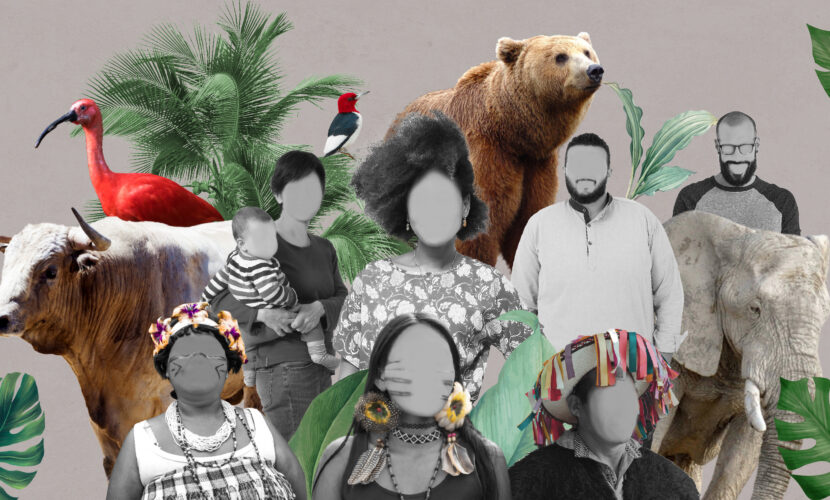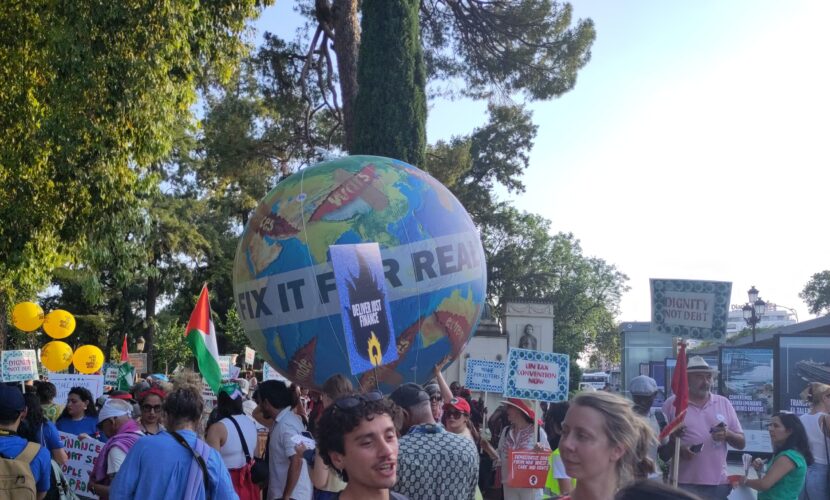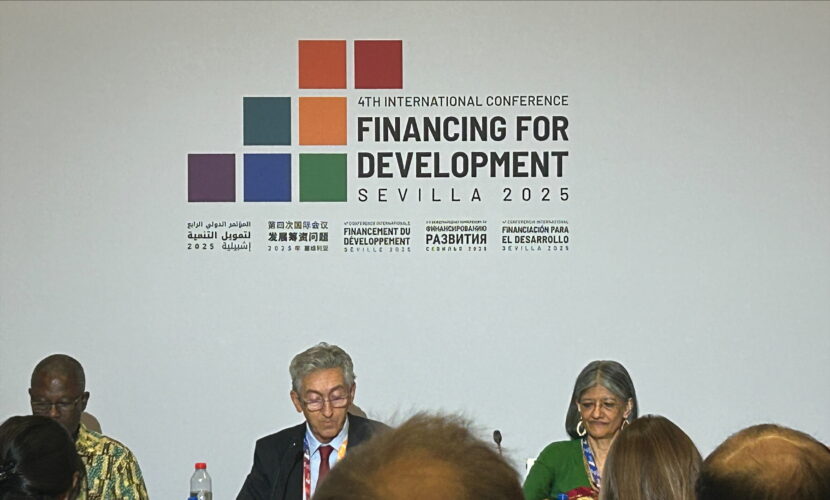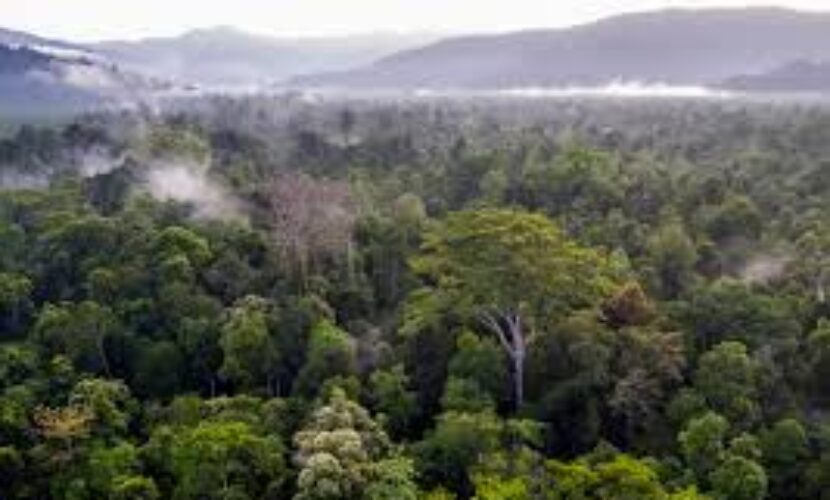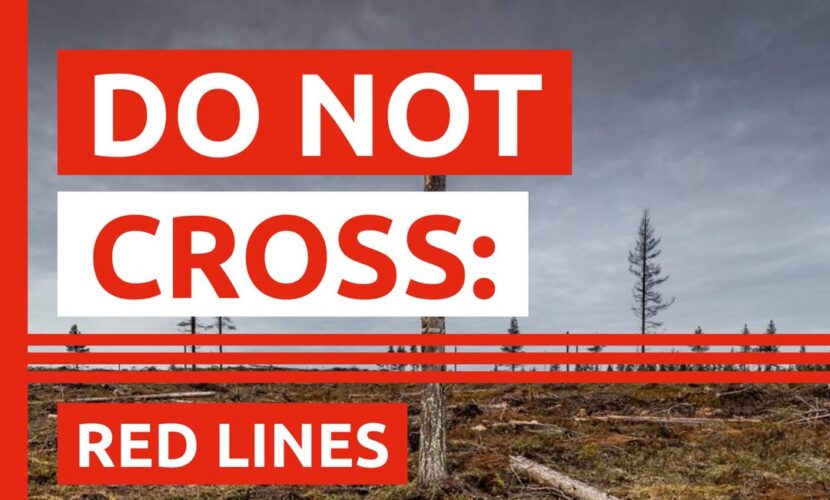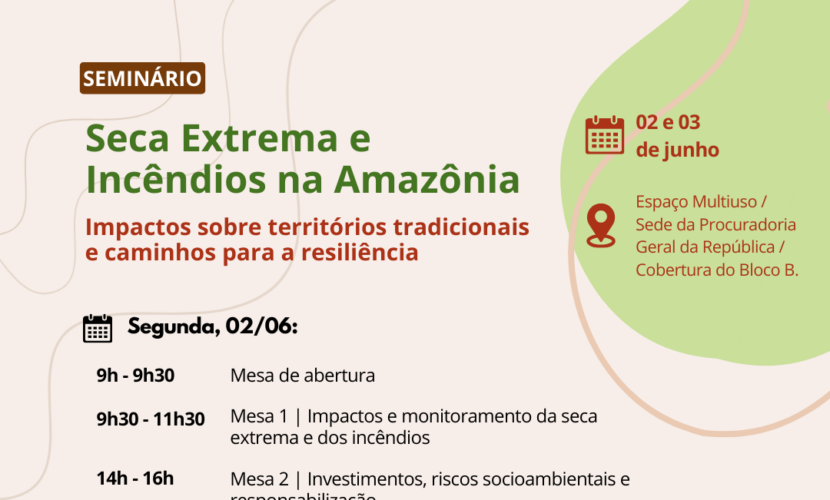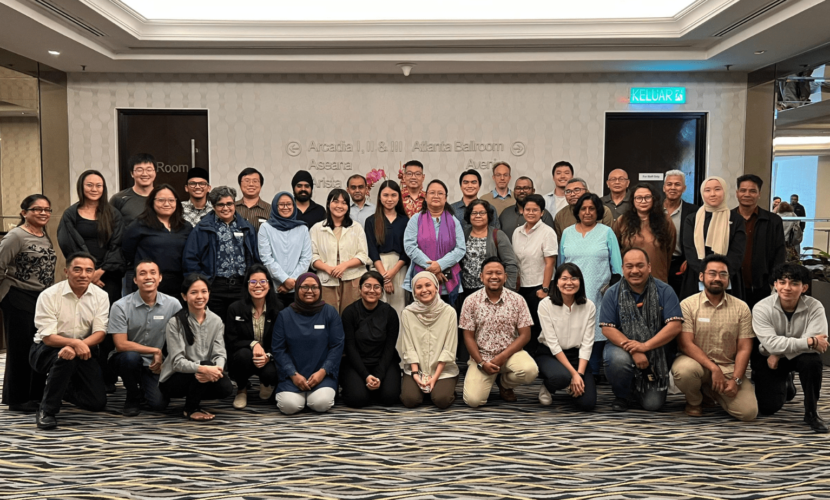最新記事&分析
The Players Behind a New Wave of Deforestation in Borneo and Papua

A new mega-scale pulpwood mill in North Kalimantan, Indonesia threatens 600,000 hectares of standing rainforest
Originally published by RAN, EPN, Auriga, Greenpeace and Woods and Wayside
New Deforestation Threats Emerge in Indonesia
Gambling on the future of our planet is not a risk we can take. While there has been some recent progress on protecting forests in Indonesia, we must remain vigilant against those looking to cash in from reckless corporate behavior.
After years of relentless expansion by logging, palm oil and pulpwood plantations, Indonesia’s efforts to reduce deforestation have started to pay off. This change has come about from a partial moratorium on new permits in primary forest areas, better enforcement of forest laws, and higher standards demanded through international supply chains.
But a new investigative report — Pulping Borneo — exposes disturbing events that threaten this trend. One such case is a new mega-scale pulpwood mill under construction on the small Island of Tarakan in Eastern Indonesia. At full capacity, the new mill is projected to shred through 3.3 million tonnes of timber a year — that’s over 100,000 truckloads of logs annually, putting at risk 600,000 hectares of ancient rainforests in Borneo and Papua.
It is not surprising that corporations keep trying to profit from Indonesia’s dwindling rainforests — regardless of the Indigenous communities living in and around them, the astonishing biodiversity they still support, or their critical contribution to climate stability and Indonesia’s own climate commitments.
Notable are the players involved in this deadly game, each making a mockery of their own sustainability policies — Royal Golden Eagle (RGE), Mitsubishi UFJ Financial Group (MUFG) and Procter & Gamble (P&G).
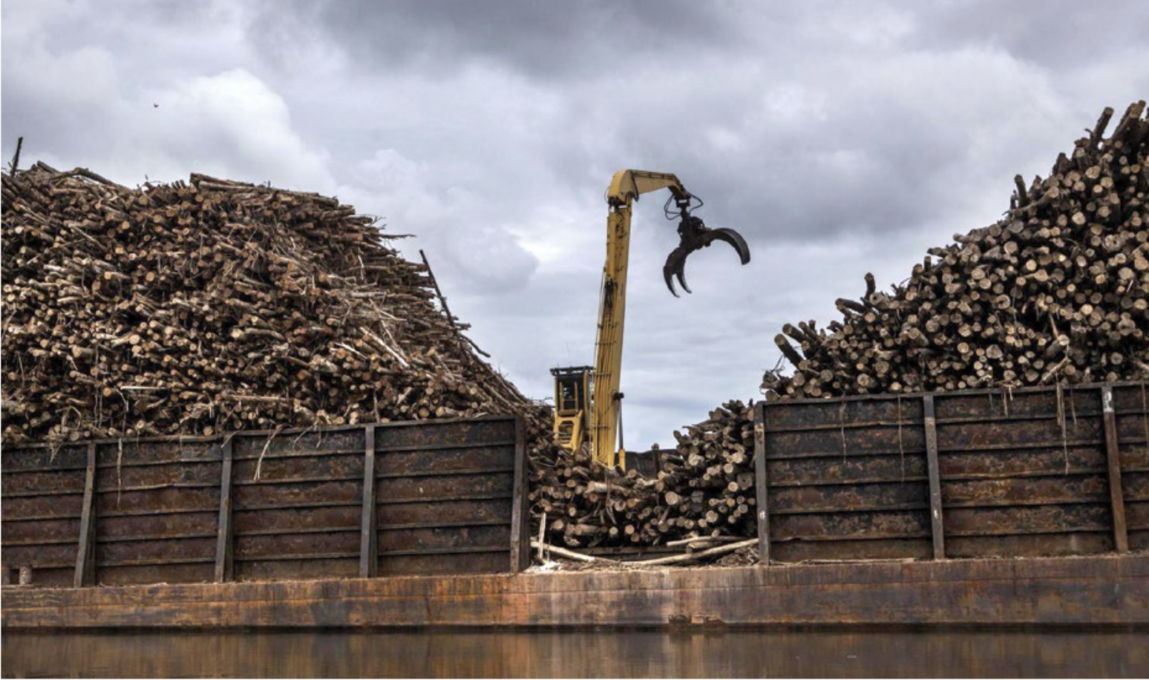
The Ace of Deforestation — RGE
At the top of the deck is PT Phoenix Resources International, a company registered in the Cayman Islands and the face of the new mill in Tarakan. Investigations reveal however that Phoenix Resources International is likely under the control of one of Indonesia’s richest and most controversial business tycoons, Sukanto Tanoto — the ultimate owner of the Royal Golden Eagle (RGE) group of companies.
It is not uncommon for businesses to create complex corporate structures involving layers of ownership through offshore jurisdictions. These arrangements offer big business ways to reduce or eliminate tax bills, often at the expense of state revenue in countries that they actually operate in. What they also offer however is the ability for groups to operate ‘shadow companies’ — businesses engaged in controversial activities, operating under the radar, that would otherwise run counter to the carefully managed public image of parent groups.
RGE has a long and devastating history of clearing Indonesia’s rainforests and violating the rights of Indigenous and local communities. However, from 2015, the group and its major constituent companies APRIL (a pulp and paper company), Asian Agri (a palm oil producer and refiner) and Apical (a palm oil processor and trader) have all touted their commitment to sustainability, including a ‘no deforestation’ pledge. RGE claims that their policy applies ‘without exception’ to all companies that they ‘own, manage or invest regardless of stake’, and includes ‘all third-party fibre, wood and pulp suppliers’. The credibility of these commitments is highly questionable.
The King of Cash — MUFG
Key to the continued expansion of RGE is its reliance on banks to front the money for capital-intensive projects, such as new mills like the one in Tarakan. Data compiled by the Forests & Finance Coalition shows that RGE’s top 15 banks have loaned more than USD 5 billion to the group’s forest sector operations since 2016. One of RGE’s prized bankers is Mitsubishi UFJ Financial Group (TSE: MUFG), Japan’s largest bank.
In connection to a recent MUFG-backed loan, RGE’s President stated: “Sustainability is at the core of our business model and sustainable financing is the way forward for RGE. We have the support and interest from our banking partners and secured a total of US$1.6 billion in sustainability-linked loans in 2022.” The statement reads more like a greenwashing pact.
MUFG’s deep financial backing to RGE group companies appears to be at odds with MUFG’s own Forestry Policy – which requires clients to be free of involvement in the deforestation of ‘High Conservation Value (HCV) Areas’. Pulping Borneo reveals that another RGE-linked mill — PT Balikpapan Chip Lestari — has been processing timber from the clearance of over 37,000 hectares of natural forest, including Orangutan habitat, from 2015-2022. And then there’s the 2021 scandal exposing RGE palm oil coming from clearance of primary forests in the Leuser Ecosystem. The list goes on, but sadly so does the money.
A common excuse for banks connected to harmful activities is that their sustainability policies only apply to specific subsidiaries within a wider corporate group. Blatant loopholes such as these render forest protection commitments virtually meaningless. It also runs afoul of enshrined international standards like the OECD Guidelines for Multinational Enterprises and other financial standards issued by international bodies on issues such as corruption.
It is telling that more and more banks have been stepping away from RGE in recent years. If MUFG’s sustainability commitments are to be believed, they too must take a stand and sever ties with the group. But turning off the money tap is only part of the solution. Any bank that has helped the expansion of RGE or groups like them should also be liable for providing remedy to the communities and ecosystems harmed.
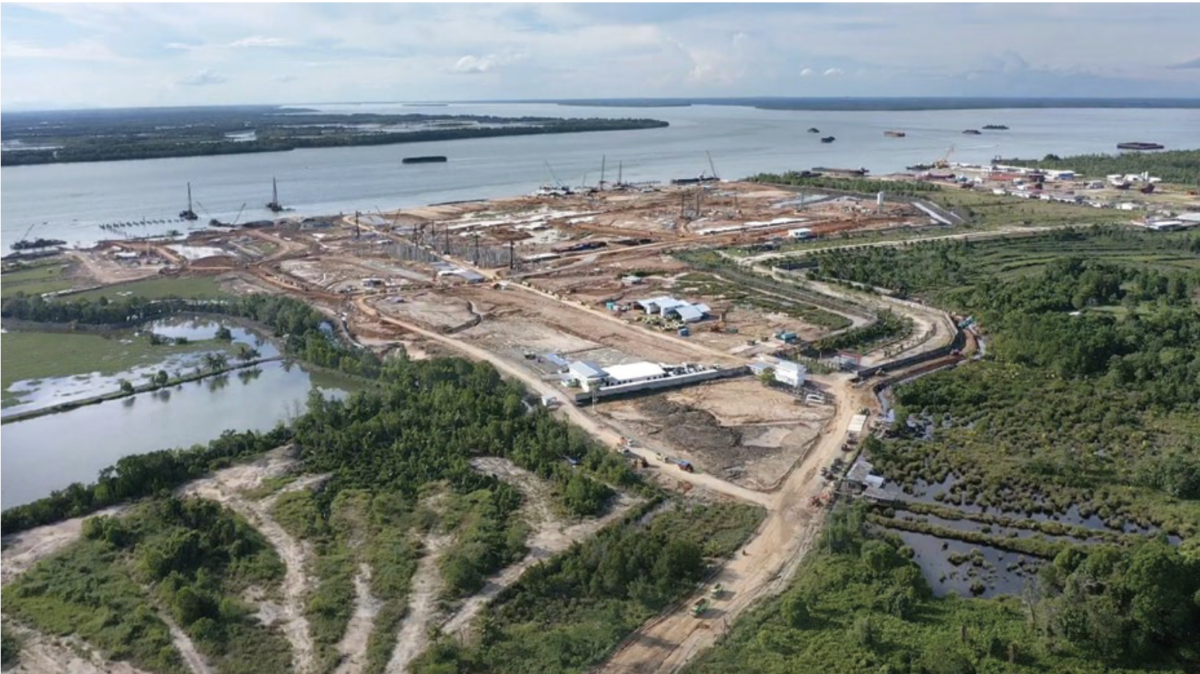
The Queen of Cosmetics — P&G
Next in the deck are the consumer goods companies who play a major role in driving demand for cheap ingredients sourced from exploited land and people. Procter & Gamble (P&G), for example, sources raw materials from RGE’s palm oil division, ending up in a wide range of its personal hygiene and beauty products. While P&G points to its No Deforestation, No Peat, No Exploitation (NDPE) policy, like MUFG, it falls short by failing to apply its policies to all forest risk commodities at the corporate group level.
While profits continue to roll in for P&G, its true cost of doing business with groups like RGE hits local communities across Indonesia standing in the path of deforestation. One such case is land grabbing by the RGE-linked company Toba Pulp Lestari (TPL), against the Pargamanan-Bintang Maria community in North Sumatra.
Pargamanan-Bintang Maria is one of dozens of Indigenous Batak communities impacted by TPL. Land taken over by the company overlaps 40 percent of their ancestral lands, with a third already converted into industrial pulpwood to feed its mill – a process that took place without the community’s full consent. The impacts are already dire with increasing droughts, floods and declining forest-dependent livelihoods. In tandem with local organizing, the community is demanding global brands like P&G end business with the RGE’s entire corporate group until TPL returns their customary forests and stops criminalizing and intimidating Indigenous communities.
Calling time on this deadly game
It is high time that brands and banks — like P&G and MUFG — stop abusing policy loopholes. Sustainability policies at international corporations and financial institutions must prohibit them from doing business with any corporate group involved in deforestation, the destruction of peatlands, or the exploitation of local communities and workers. And these policies must cover all forest-risk sector commodities and be applied across the entire corporate group. Anything less than this is a sleight-of-hand — an intentional distraction from the true harm they are causing.
The good news is that there is a detailed methodology specifically designed for brands and banks to evaluate the full scope of any client or supplier corporate group — using the Accountability Framework Initiative (AFI) definition. AFI defines a corporate group as “the totality of legal entities to which the company is affiliated in a relationship in which either party controls the actions or performance of the other.” This approach should be the basis of any brand or bank policy scope.
While the challenges and solutions to deforestation are as complex as the rainforests are vast, one thing is certain: to keep forests standing, brands and banks must stop pretending to be green and instead commit to robust policies and take them seriously. Dealing cash and contracts to corporate groups quietly leveling forests and destroying communities does not count as “sustainable.” We need to call it for what it is — it is cheating, plain and simple.
